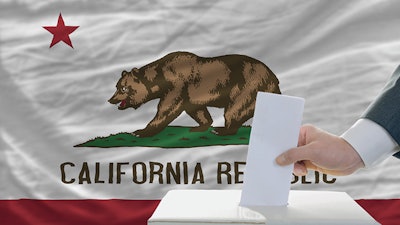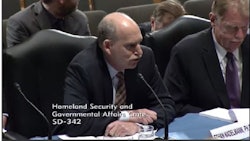
The Adult Use of Marijuana Act (AUMA) officially qualified for the Nov. 8, 2016, ballot in California, according to a June 28 announcement by Secretary of State Alex Padilla.
To be eligible for the ballot, the initiative needed 365,880 valid petition signatures, according to the announcement. A random sampling of the petition signatures projected at least 402,468 valid signatures Tuesday. More than 600,000 signatures were originally turned in.
The initiative will be qualified by the California Secretary of State June 30.
If the ballot measure passes, one in every six Americans will live in a state with legal marijuana sales, according to an ABC News article.
According to California NORML, AUMA allows adults 21 years old to possess up to one ounce of marijuana and cultivate up to six plants for personal use. It also regulates and taxes the production, manufacture and sale of marijuana, and reduces criminal penalties and allows prior offenders to petition for reduced charges.
However, AUMA makes public consumption illegal, including vaporization in non-smoking areas, except for in specifically licensed premises, and continues to give local government the right to ban medical marijuana cultivation and sales. It also imposes a 15 percent tax on all marijuana sales.
AUMA could raise $1 billion per year in revenue and reduce public safety costs, according to state officials in the ABC article.
“Today marks a fresh start for California, as we prepare to replace the costly, harmful and ineffective system of prohibition with a safe, legal and responsible adult-use marijuana system that gets it right and completely pays for itself,” says Jason Kinney, spokesperson for AUMA.
“This measure reflects years of hard work, diverse stakeholder input and broad, bipartisan public support. A growing majority of Californians support a smarter approach to marijuana and we’re gratified that voters will finally have the opportunity in November to pass comprehensive, common-sense policy that protects children, local control, public health and public safety, saves state and local taxpayers hundreds of millions of dollars, funds critical local programs, and serves as a model for the rest of the nation,” he says.
The leading campaign for the initiative, Californians to Control, Regulate and Tax Adult Use of Marijuana While Protecting Children, has raised more than $3.7 billion so far, according to the Los Angeles Times. That total includes donations from former Facebook president Sean Parker.
AUMA has been endorsed by several state officials, including Lieutenant Governor Gavin Newsom and three state representatives. It has also been endorsed by multiple groups including the California Medical Association, California Cannabis Industry Association, California NAACP, Drug Policy Alliance, Marijuana Policy Project, National NORML, ACLU of California and California Democratic Party.
60 percent of Californians support marijuana legalization in general, with 37 percent saying it should not be legal, according to a May 25 survey by the Public Policy Institute of California.
The California Policy Chiefs Association, California Hospital Association and California State Sherriff’s Association are among groups opposed to AUMA through the Coalition for Responsible Drug Policies.
Proposition 19, a similar proposal to AUMA, failed in California in 2010 by 7 percentage points, according to Courthouse News Service.
“This campaign will be very similar to that of Proposition 19,” says Tim Rosales in the LA Times article. “They have the money and we have the facts.”
Hezekiah Allen, executive director of California Growers Association, sees some disagreement among growers and industry professionals.
“Our members remain divided on the AUMA. While the initiative moves things forward in some ways, it also opens the door for consolidation of California's cannabis marketplace and threatens many thousands of small businesses,” he says. “Our board will be reviewing the initiative at our next meeting on July 7. We remain neutral at this time.”

























